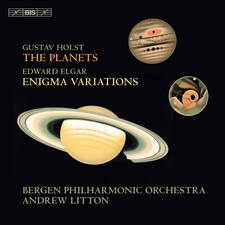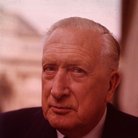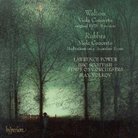William Walton And The Battle Of Britain
In 1969 Sir William Walton opened the pages of the Daily Telegraph to discover that his music for Guy Hamilton’s World War II epic, Battle Of Britain, had been ditched. This was clearly no way to treat one of England’s finest composers whose film scores alone included Oscar-nominated soundtracks for Laurence Olivier’s Hamlet and Henry V, as well as other war films, such as The First Of The Few.
In protest Olivier – Walton’s first tie with the Battle of Britain – threatened to remove his name from the credits unless the music was reinstated. So a compromise was struck: Ron Goodwin would write the score but Walton’s cue for the climactic Battle In The Air sequence would remain.
A new DVD release from MGM Home Entertainment rekindles the debate as to whether Walton was wrongly dismissed by presenting two versions of the film on one disc – one with Malcolm Arnold’s original recording of Walton’s marching themes and the other featuring Goodwin’s replacement score.
Based on real events, the film tells how RAF pilots and their allies bravely defended Britain against German invasion, battling with Hitler’s Luftwaffe for control of English skies. Viewers can choose between the two versions, watching cast members Susannah York, Christopher Plummer and Michael Caine brave the Blitz with, or without, the aid of Walton’s original recording.
It’s not uncommon for a film composer to be dropped at the last minute. Most famously, Alex North attended the premiere of 2001: A Space Odyssey to discover his entire score had been axed in favour of a medley of classical works. More recently, Elmer Bernstein raved publicly about his collaboration with Martin Scorsese on Gangs Of New York only to discover Scorsese had secretly ditched his full-length score in favour of pop songs by Peter Gabriel and U2.
Walton learnt from the financing distributor United Artists that his score for the film was too short for release on LP. Rather than ask him to write more, United’s movie moguls dumped him altogether. “It created a nasty taste in the industry at the time,” recalls Battle of Britain recording engineer, Eric Tomlinson.
Remarkably, Walton’s original recording survived. Tomlinson had the foresight to salvage it from Anvil studios, where it was gathering dust. The film’s assistant music editor Timothy Gee brought the recording to the attention of MGM, who agreed to reunite it with the film.
“I’ve always felt that Walton fulfilled his brief,” says Gee. “When United made the decision to drop him, Guy Hamilton stormed out of the meeting shouting, ‘Next you’ll want Frank Sinatra to sing Spitfires In The Night!” Now the film will be seen as he intended.”
What emerges from this DVD are two very different ideas of how the historical facts should be presented. At around 20 minutes in length, Walton’s contribution is sparse, meeting Guy Hamilton’s original aim to use the noises of combat – the whine of Spitfires and soft thud of missiles – to set the scene. Goodwin’s score, meanwhile, is more conventionally tailored to the film – a full-blown music treatment following in the footsteps of his scores for 633 Squadron and Where Eagles Dare.
But both scores will probably be remembered less for their individual artistic merit than for the controversy they caused.






